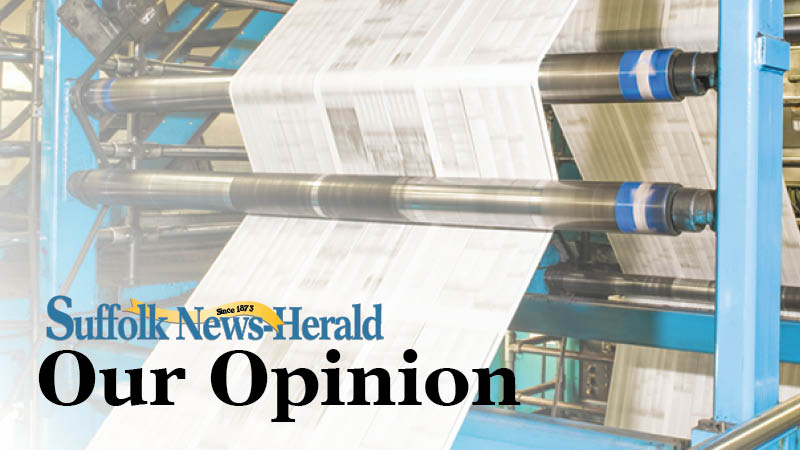Paid endorsements
Published 10:50 pm Monday, January 7, 2013
On Election Day in Suffolk, it paid to be on the candidates’ payrolls.
The city’s paid election officers are among the keys to a smoothly run election. But in this election, at least, it was the other paid poll workers — the ones out there passing out literature and knocking on doors and doing the other last-minute things designed to drum up interest in particular candidates — who really brought home the bacon.
Recently released campaign finance reports show there were plenty of people on the streets Nov. 6 who were talking to voters about their candidates — at least in part — because they were being paid to do so.
Mayor Linda T. Johnson, re-elected by a slim margin over Leroy Bennett, a former council member who challenged Johnson for the gavel, had 16 poll workers making the rounds on Election Day. Each of them earned $100, and Johnson spent $400 to buy them breakfast and lunch that day, which suggests that everyone got at least two good meals and a bit of walking-around money out of the deal.
For his part, Bennett was far more generous with his dollars, hiring more poll workers and paying them more to do the job of getting out the vote. Bennett’s 56 poll workers earned $125 each, but there’s no obvious reference to meals, so one is left to wonder whether all those folks worked right through breakfast and lunch. Either way, the effort fell short, as Bennett was unable to unseat Johnson, despite a better-than-average turnout at the polls all around Suffolk.
Even Whaleyville Councilman Curtis Milteer helped contribute to the Election Day poll-worker payday. Despite the fact that he was running unopposed for the Whaleyville Borough seat on City Council, Milteer still paid 13 poll workers $110 each to do some last-minute politicking on Election Day. Facing a late write-in campaign, Milteer may have been relying on the paid poll workers to help shore up his support.
Judging from the results of the November election in Suffolk, it would be hard to conclude whether or not paying for partisan poll workers is an effective use of campaign funds. What seems clear, however, is that many voters might have thought differently about the message they heard from those folks if they knew they were just getting paid endorsements.



